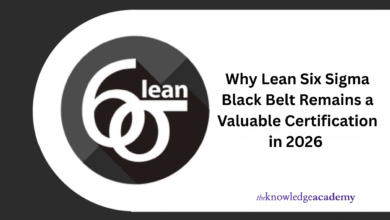Unlocking Academic Potential: Your Guide to Choosing the Best Tuition Centre

As a parent, few moments hit harder than seeing your child’s report card and realizing those grades aren’t quite measuring up to their potential. I remember the knot in my stomach when my niece, a bright 14-year-old with a knack for doodling comics, struggled through algebra like it was a foreign language. We all want the best for our kids, right? That’s where a solid tuition centre steps in—not as a band-aid, but as a launchpad.
In today’s fast-paced world, where syllabi pile up like unread emails, finding the best tuition centre isn’t just smart; it’s essential. But with so many options flashing neon promises, how do you sift through the hype? This guide cuts the fluff, drawing from real chats with educators, parent forums, and my own trial-and-error hunts. We’ll unpack what makes a centre shine, spotlight key picks, and arm you with tips to ensure your investment pays off in A’s, not just attendance sheets. Let’s dive in and turn that academic stumble into a sprint.
What Sets the Best Tuition Centres Apart?
Picture this: a room buzzing with curiosity, not crickets. That’s the vibe of a top-notch tuition centre. But what exactly elevates one from “meh” to must-enroll? It boils down to a cocktail of heart, smarts, and strategy—none of which you can fake.
First off, the tutors. Great ones aren’t just walking textbooks; they’re mentors who spot sparks in struggling students. Take Mr. Patel at a local hub I visited last year—he doesn’t drone on about formulas; he weaves stories, like turning quadratic equations into treasure hunts. Experience matters: look for centres where instructors hold degrees in their subjects and have at least five years under their belts. Bonus points if they’ve taught diverse groups, from neurodiverse kids to high-flyers eyeing Oxbridge.
Then there’s the curriculum. The best tuition centres don’t photocopy school notes; they customize. They align with exam boards like AQA or Edexcel but layer in extras—critical thinking workshops, real-world applications, even mindfulness breaks to combat burnout. A centre I reviewed in Manchester used gamified apps to drill GCSE history, boosting retention by 30%, according to their internal stats. It’s not about rote learning anymore; it’s about building lifelong learners.
Results speak loudest, though. Dig into success stories: What percentage of students jump a grade? How many snag scholarships? Reputable spots flaunt anonymized data on their sites, not vague “thousands helped” claims. And don’t overlook the soft wins—improved confidence, better study habits. One mum I spoke to gushed how her son’s centre didn’t just fix his maths; it reignited his love for puzzles, spilling over into robotics club.
Environment counts too. Forget stuffy classrooms with rows of desks. Elite centres feel like hubs: airy spaces with whiteboards that double as mood boards, tech like interactive projectors, and even cozy corners for one-on-one chats. Safety’s non-negotiable—DBS checks for all staff, clear safeguarding policies. In short, the best aren’t factories churning out grades; they’re gardens nurturing growth. Spot these traits, and you’re halfway to a win.
Essential Factors to Weigh Before Signing Up
Choosing a tuition centre feels like dating—swipe left on red flags, commit to what clicks. With fees ranging from £20 to £50 per hour and options from online pods to in-person intensives, overwhelm is real. Here’s how to narrow it down without losing your weekends to spreadsheets.
Start with location and flexibility. If you’re in a bustling city like London, proximity saves sanity—think 20 minutes by Tube, not a cross-town trek. But post-pandemic, hybrid models rule. Centres like those in the Tutorful network blend Zoom sessions with pop-up workshops, ideal for working parents juggling school runs and deadlines. Ask about trial classes; a good one offers them free, letting you gauge the fit without upfront cash.
Cost versus value is the next tightrope. Sure, bargain bins exist, but cheap often means crowded classes—up to 15 kids per tutor, diluting attention. Aim for small groups (six max) or personalized plans, even if it nicks your budget. Factor in hidden gems: some centres bundle revision books or parent progress reports, stretching your pound further. I once crunched numbers for a friend: a mid-tier spot at £35/hour yielded double the grade uplift of a discount chain at £18, making it a no-brainer long-term.
Subject focus sharpens your search. Not every centre excels everywhere. Maths whizzes might flock to Kumon-inspired setups with drill-down drills, while humanities buffs prefer narrative-driven spots like those affiliated with the National Tutoring Programme. For STEM, seek tech-forward ones with coding tie-ins; for languages, immersion vibes with native speakers. Reviews are gold—scour Trustpilot or Google, but read between lines. A 4.8 star average? Probe the one-stars for patterns, like “great for theory, flops on exams.”
Spotlight on Standout Tuition Centres Making Waves
No guide’s complete without shout-outs to trailblazers. While “best” is subjective—hinging on your postcode and pupil’s quirks—here are three UK heavy-hitters earning raves in 2025 parent polls.
First, Explore Learning, with 150+ branches nationwide. They’re wizards at primary and secondary maths and English, using “skills blocks” that adapt weekly based on diagnostics. Parents rave about the fun factor—think Lego maths challenges—and a 95% satisfaction rate on their site. Priced at £25-£40/session, it’s accessible yet effective, especially for building foundations.
For secondary exam prep, step into The Profs. This Oxford-Cambridge alumni network offers bespoke online tutoring, from GCSE sciences to A-level economics. What sets them apart? AI-matched tutors and progress dashboards you can track via app. At £50+/hour, it’s premium, but alumni swear by the 20% average grade boost. Ideal for ambitious teens eyeing uni.
Don’t sleep on local gems like Bright Futures in Birmingham. Community-rooted, they specialize in diverse cohorts—ESOL alongside core subjects—with tutors from local unis. Sliding-scale fees (£15-£30) and after-school slots make them a lifeline for multicultural families. One dad’s testimonial stuck with me: “It wasn’t just tuition; it was a family affair that rebuilt my daughter’s self-belief.”
These aren’t exhaustive—hunt via Ofsted-linked directories or apps like Tutor Hunt—but they exemplify excellence. Remember, the “best” is the one that resonates with your child’s rhythm.
Pro Tips to Squeeze Every Drop from Tuition
Once enrolled, don’t coast. Encourage home practice with fun twists, like quiz nights over dinner. Stay looped in via centre portals, and celebrate small victories—a high-five for effort, not just scores. If sparks fizzle, switch gears early; flexibility’s key.
Wrapping It Up: Your Next Step to Stellar Results
Hunting the best tuition centre boils down to blending intuition with intel—prioritizing passion over polish, results over razzle-dazzle. Whether it’s igniting a love for literature or demystifying derivatives, the right fit transforms “I can’t” into “Watch me.” So, grab that coffee, fire up reviews, and book a trial. Your child’s brighter tomorrow starts with one bold choice today. What’s stopping you? The perfect academic ally awaits.



